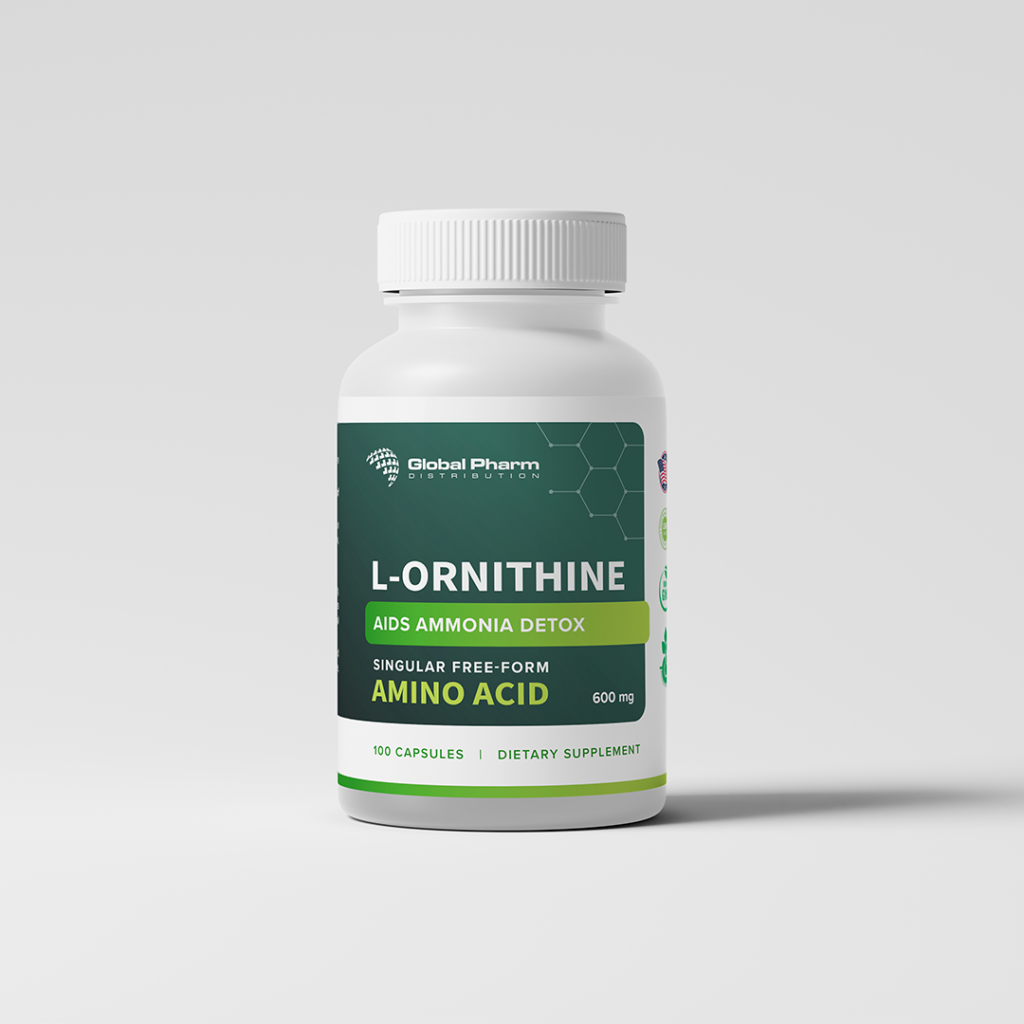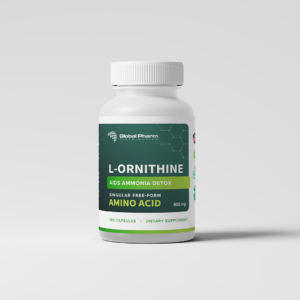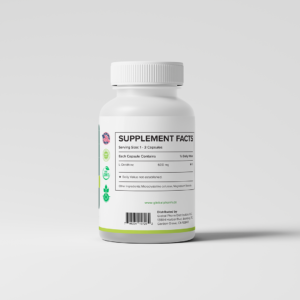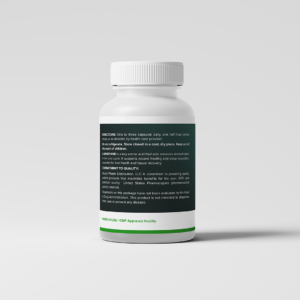Description
NDC: 53335-082-14 (capsule), 53335-083-29 (powder)
Weight: 4 Oz
L-Ornithine is a non-essential amino acid produced by the body, derived from arginine metabolism during urea production, and serves as a precursor to citrulline, proline, and glutamic acid. It plays a vital role in ammonia detoxification and liver rejuvenation via the urea cycle, supports immune function, and aids in skin and tissue healing. L-Ornithine may induce growth hormone release, potentially assisting fat metabolism, and is beneficial for metabolic responses to trauma, such as wound and post-surgical recovery. While some suggest it promotes muscle building or nitrogen balance, evidence remains inconclusive. Research supports its detoxifying, immune, and healing properties (e.g., Cynober 2007).
L-Ornithine is particularly beneficial for individuals seeking liver support, immune enhancement, or recovery from tissue damage. Manufactured using premium pharmaceutical-grade materials in a GMP-approved facility in the USA, L-Ornithine is free of fillers, binders, or coloring agents, with no known side effects when used as directed.
Directions: Take 1-3 capsules daily or as advised by your healthcare provider. Pair with vitamins and minerals; GPD’s MVM (Multivitamin) is recommended. Powder equivalent: 1/4 level teaspoon per capsule.
Key Benefits
- Supports Liver Health: Aids ammonia detoxification and rejuvenation.
- Enhances Immune Function: Strengthens immune response.
- Promotes Tissue Repair: Assists in wound and post-surgical healing.
References
- Cynober L. (2007). “Ornithine alpha-ketoglutarate: Description and biochemical properties.” Current Opinion in Clinical Nutrition & Metabolic Care, NIH.
- Wu G. (2009). “Amino acids: Metabolism, functions, and nutrition.” Amino Acids, NIH.
- Tapiero H, et al. (2002). “L-Arginine and L-Ornithine metabolism.” Biomedicine & Pharmacotherapy, NIH.
- Sugino T, et al. (2008). “Effects of ornithine on growth hormone release.” Nutrition Research, NIH.
These statements have not been evaluated by the Food and Drug Administration. This product is not intended to diagnose, treat, cure, or prevent any disease. Consult a doctor or medical professional before use, especially if pregnant, nursing, or taking medications.
Additional Information The following points provide insight into L-Ornithine levels and their association with various health conditions, reflecting its role in metabolism:
- Typical Range (per capsule): 500-1000 mg (approximate, based on standard supplements; exact dose not provided).
- Conditions Associated with Low Levels:
- Liver dysfunction (impaired urea cycle)
- Immune suppression (reduced activity)
- Tissue repair delays (e.g., wounds, surgery)
- Conditions Associated with High Levels:
- Excessive supplementation (rare, may cause digestive discomfort)
- Kidney stress (from high nitrogen load)
- Metabolic imbalances (e.g., hyperornithinemia)
- Notes: L-Ornithine supports liver detoxification, immune function, and tissue healing, with potential fat metabolism benefits via growth hormone. Low levels may indicate metabolic or healing issues, while high levels could result from over-supplementation. These associations are correlative and require further research for causal confirmation. For more technical information, please click here. Consult a doctor or medical professional before use, especially if pregnant, nursing, or taking medications.
 Global Pharm Distribution, LLC
Global Pharm Distribution, LLC




